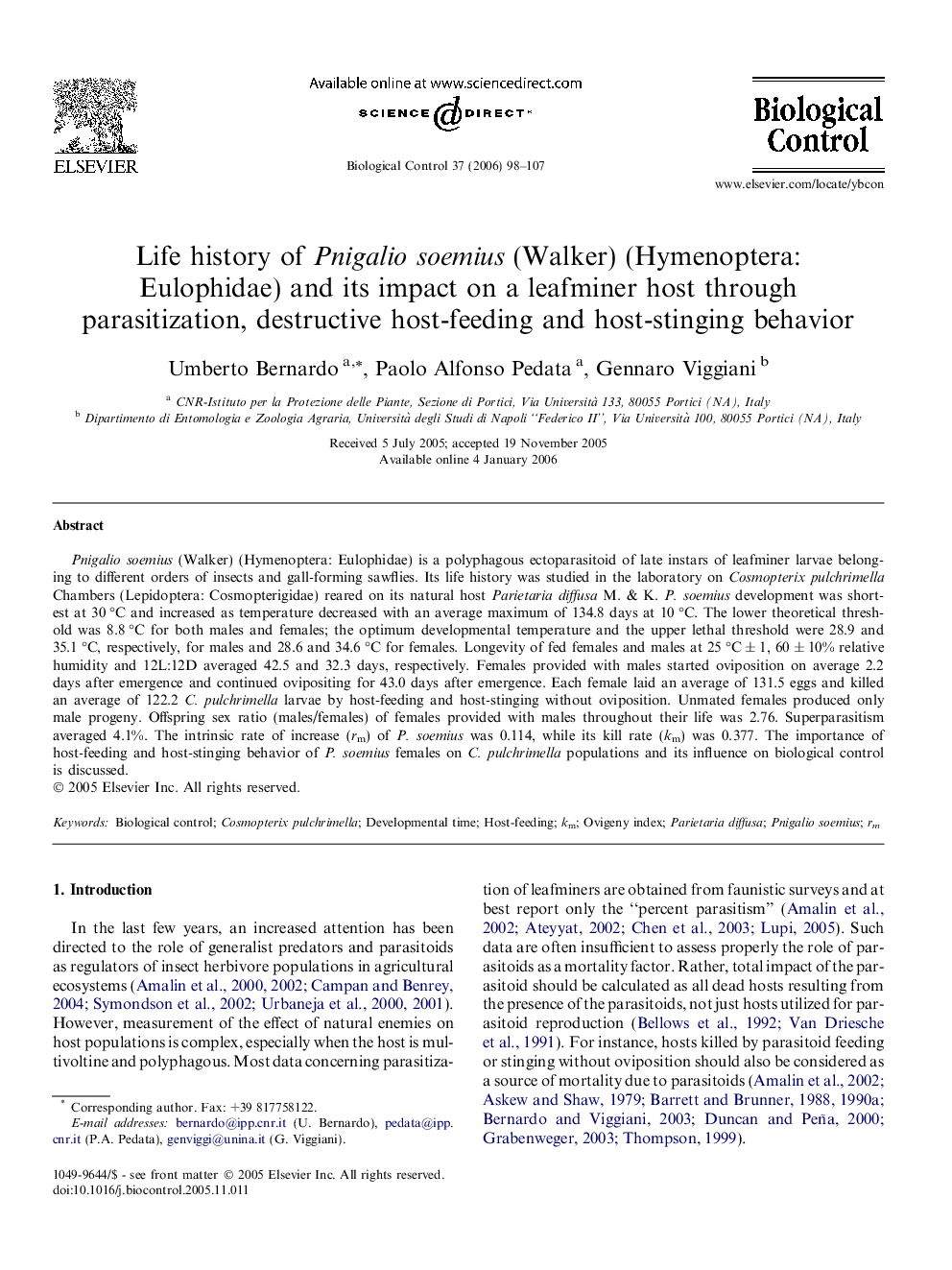| Article ID | Journal | Published Year | Pages | File Type |
|---|---|---|---|---|
| 4505441 | Biological Control | 2006 | 10 Pages |
Pnigalio soemius (Walker) (Hymenoptera: Eulophidae) is a polyphagous ectoparasitoid of late instars of leafminer larvae belonging to different orders of insects and gall-forming sawflies. Its life history was studied in the laboratory on Cosmopterix pulchrimella Chambers (Lepidoptera: Cosmopterigidae) reared on its natural host Parietaria diffusa M. & K. P. soemius development was shortest at 30 °C and increased as temperature decreased with an average maximum of 134.8 days at 10 °C. The lower theoretical threshold was 8.8 °C for both males and females; the optimum developmental temperature and the upper lethal threshold were 28.9 and 35.1 °C, respectively, for males and 28.6 and 34.6 °C for females. Longevity of fed females and males at 25 °C ± 1, 60 ± 10% relative humidity and 12L:12D averaged 42.5 and 32.3 days, respectively. Females provided with males started oviposition on average 2.2 days after emergence and continued ovipositing for 43.0 days after emergence. Each female laid an average of 131.5 eggs and killed an average of 122.2 C. pulchrimella larvae by host-feeding and host-stinging without oviposition. Unmated females produced only male progeny. Offspring sex ratio (males/females) of females provided with males throughout their life was 2.76. Superparasitism averaged 4.1%. The intrinsic rate of increase (rm) of P. soemius was 0.114, while its kill rate (km) was 0.377. The importance of host-feeding and host-stinging behavior of P. soemius females on C. pulchrimella populations and its influence on biological control is discussed.
